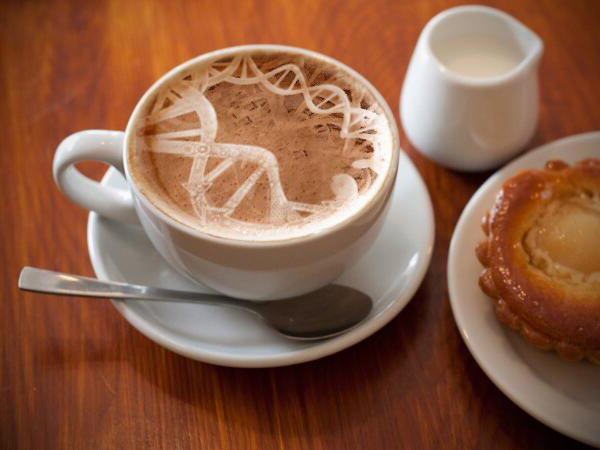
Ever wondered the relation between your coffee consumption and genes? According to scientists, genes do play some role in humans and their urge to drink coffee.
In a research study conducted by scientists in Scotland, the gene PDSS2’s variation was identified for the slower breakdown of caffeine in people’s bodies. This slower breakdown of caffeine means that the effect of caffeine stays for a longer time in the body thus not requiring them to drink coffee more often to get the same results as those who consume coffee frequently.
This study was conducted on a group of more than 1000 people from Italy – both northern Italy and southern Italy. In addition to this group were 1,700 people or more, from the Netherlands. In this study, the DNA of all the participants was examined. A questionnaire was also given to them which had questions related to their daily coffee consumption.
The results of the research showed up the following aspects:
• Among Italian people, those who had a particular variation of the gene – PDSS2 were inclined to drink lesser amount of coffee.
• The same gene variation when compared among a Dutch group also showed that these people drank lesser coffee than others. (But the difference observed here was not as large as that among Italians.)
Previous research shows that PDSS2 and other genes also have a role to play in the coffee consumption among people.
According to the lead author of the study, Nicola Pirastu, a research fellow in statistical and quantitative traits genetics at the University of Edinburgh, the research suggests that the drive to drink coffee is influenced by the genes.

Helen Santoro is a Boston-based science writer who has been working in the field of science for over six years. Before moving to the bustling city, Helen attended Hamilton College where he received Bachelor of Arts in Neuroscience. She then worked as a res archer at Boston Children’s Hospital where she helped uncover the mechanisms behind acute and chronic pain conditions with the long-term goal of improving patient care. Her writing has spanned from genome engineering to biochemistry to gender issues in the STEMM field.
